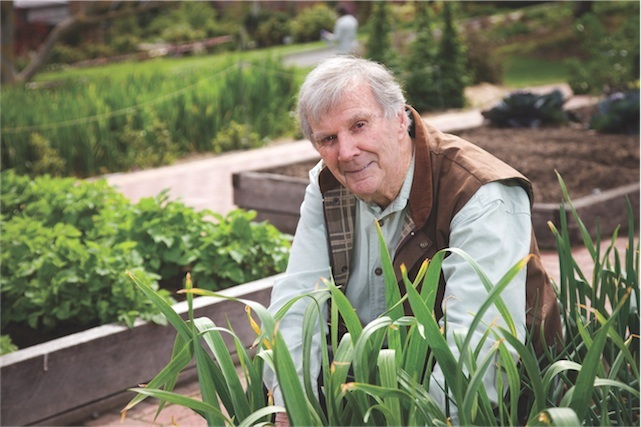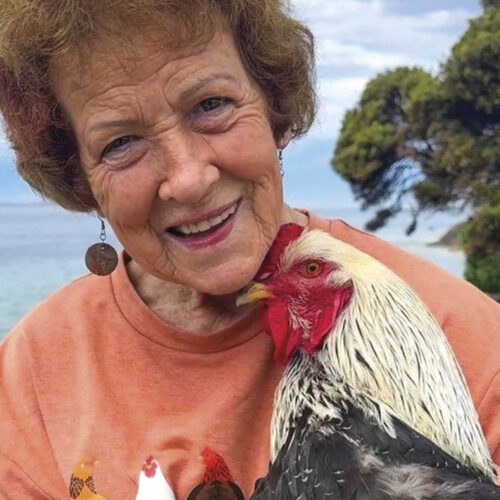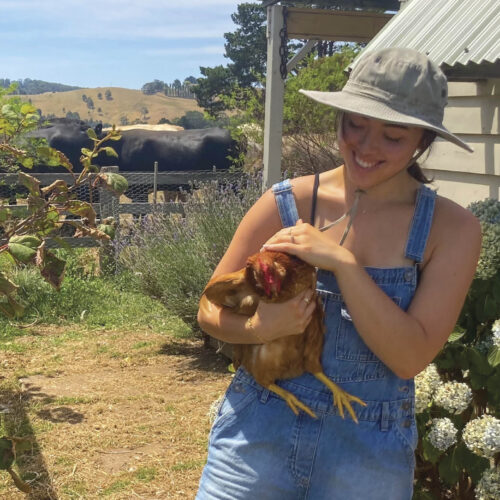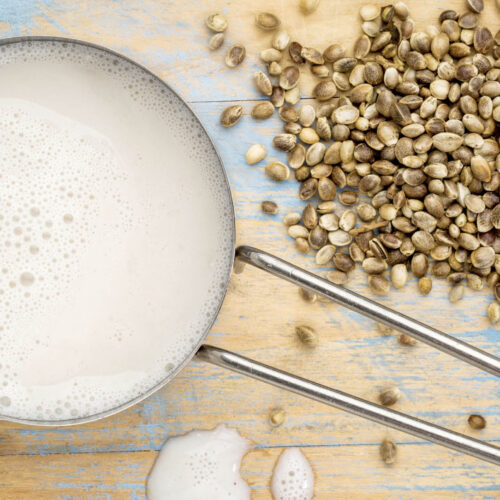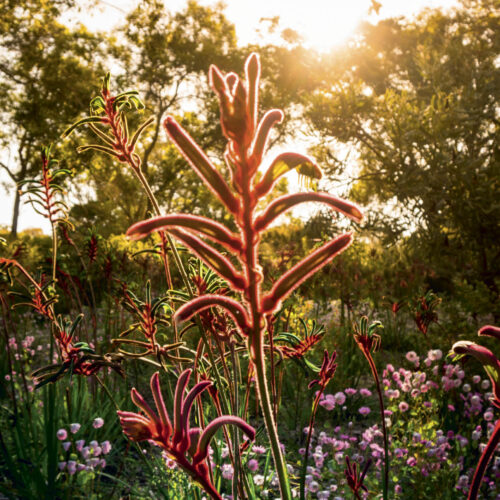Patches of peace
2015-10-06T04:28:27+11:00
Gardening is proving a therapeutic tonic, both physically and mentally, for returned war veterans around Australia, writes SIMON WEBSTER.
“Gardening saved my life,” says Tony Smith-Holley. “If I hadn’t discovered it I wouldn’t be here, because I was in a bad place.”
The 43-year-old former army private served in the Middle East and was discharged in 2011 suffering from physical and mental health issues. He found so much solace in gardening that in 2013 he turned his backyard in Wamberal, on the NSW Central Coast, into a community garden for veterans. Then, last year, with the support of the local RSL, Smith-Holley orchestrated the opening of a second veterans’ community garden, at the Breakers Country Club in nearby Terrigal.
“It’s a place to relax and feel safe,” Smith-Holley says. “It’s also about having pride in yourself. When my five-year-old says, ‘Can I have some of that jam you made, Daddy’, or talks about the things we grow in the garden, you get a real feeling of self-worth.”
Smith-Holley’s gardens are among a number of community vegie patches for war veterans springing up around the country, including in Brisbane, where Ted Chitham, national secretary of the Royal Australian Regiment Association, is helping to set up a permanent patch at the Enoggera Army Barracks.
The base is already home to the National Memorial Walk, where more than 1000 native Australian trees have been planted to commemorate fallen soldiers, and are maintained by veterans. But Chitham believes vegetable gardening will bring extra benefits, and not just because the vets and their families will be able to eat the produce.
“Because of the short life cycle of the plants, the growth is something you can see,” Chitham says. “We may have people dedicated to individual crops, so they become theirs. They can take ownership. It’s a bit like life: things grow, they die, you replant and you keep things going.”
A growing cause
The Enoggera patch is due to open in September. It’s all music to the ears of Organic Gardener writer Peter Cundall, who has been presenting gardening workshops for war veterans in Tasmania since 2012. The workshops take place each October during Veterans’ Health Week at various locations around the Apple Isle, with a focus on organic food growing. They’re open to any veteran, including police and United Nations personnel, and their families. “The benefits are quite extraordinary,” Cundall says. “There’s a reassurance in getting involved in gardening. It’s so totally different from the danger of war.”
Cundall has long been aware of how gardening can help people cope with the scars of conflict. “When I was a child in Manchester quite a number of local blokes had an allotment and little greenhouse,” he says. “I asked my mother why they didn’t speak. She said, ‘They’re shell-shocked, Peter.’ “They found extraordinary relief in the certainty of gardening, the reassurance that comes with sowing seeds and growing plants.”
A veteran of three wars himself, Cundall knows how difficult it can be for veterans to readjust to normal life. “Many are a bit ashamed or embarrassed as a result of their fears, but if a person has been in extreme danger 24 hours a day for weeks, months or longer, when they return to normality they still have that feeling,” he says. “People will drive down the main street in Hobart and feel like someone is going to throw a bomb in the car.” There has been a fourfold increase in post-traumatic stress disorder (PTSD) cases among veterans since Australian troops first went to war in Afghanistan in 2001, the ABC reported last year, which may go some way to explaining why Cundall’s workshops have been so popular, attracting up to 100 veterans at a time.
“It’s always a profound shock to turn up and find all these people with their families,” Cundall says. “Very few have much to say, but many contact me later and say they’ve started their own garden.”
Therapeutic benefits
Josh Weir, from Hobart, attended a veterans’ workshop with Cundall in 2013 and another one with Gardening Australia presenter Tino Carnevale a year later. Weir was medically discharged from the army in 2010, suffering from PTSD and physical injuries following stints in Bougainville and Iraq.
For a while, Weir grew ferns, and spent a little time each day tending them and talking to them as self-therapy, but since attending the workshops he has taken his gardening to a whole new level, and now has a backyard full of vegetables and fruit trees.
“If I don’t get called in for dinner I’ll be out there till night time,” Weir says. “I get lost in the moment, it’s just so relaxing and therapeutic.
“You learn patience. Watching something slowly grow and knowing that you helped create that life is very rewarding. And if you grow something and it dies, you just grow it again.”
Mike Romalis is the coordinator of the Tasmanian workshops, and has established a permanent plot for veterans and their families in the Tasmanian Community Food Garden in Hobart’s Royal Botanical Gardens, appropriately on the former site of Pete’s Patch, from where Cundall used to present Gardening Australia. With a walled garden that provides an extra sense of security, the plot is maintained by more than 20 veterans who are benefiting from not only working the soil but the social aspect of the garden as well.
“A lot of veterans suffering PTSD turn into hermits,” Romalis says. “They’re angry with the world and with themselves, what happened to them. It’s a mix of denial and anger and they block everybody out. “Gardening allows them to be with other veterans. Over time they socialise, relax and develop self-confidence.
People who take up gardening are happier. They communicate. They’re prepared to talk.”
With the support of the Department of Veterans Affairs, the RSL and Royal Tasmanian Botanical Gardens, Romalis believes his Tasmanian projects are complementing the clinical treatment of traumatised veterans with something very down-to-earth and practical. “What we’re doing is literally grassroots stuff,” he says.
Back on the Central Coast, at the time of going to press Smith-Holley was putting the final touches to a networking website that will link and document what he hopes will be an increasing number of veterans’ gardens around Australia; gardens that will save more lives.
Smith-Holley agrees that the support network provided by these community gardens is of crucial importance. “You’re surrounded by people who understand what you’re going through,” he says. “Unless you lost a limb, you look like a normal person on the outside. But ask our partners. We’re not that same person who went away.”

